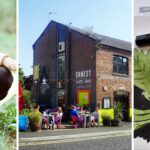- Work Hard
- 10th Feb 2021
- 913 Views
- 0
- 1 minutes
HLN Meets: Dawn Gascoigne of akt charity

Around a quarter of all homeless young people identify as LGBTQ+ – we meet one of the North East women at the nationwide charity leading the fight against these statistics.










Comments